Discover 15 stunning aesthetic plants to beautify your home and garden. Learn about easy-care options, their benefits, and how to grow them successfully.
Are you looking to add some natural beauty to your living space? Plants can transform any room or outdoor area into a peaceful oasis. In this article, we’ll explore 15 of the best aesthetic plants that are both visually appealing and easy to care for.
Why Choose Aesthetic Plants?
Aesthetic plants do more than just look pretty. They can:
- Improve air quality
- Reduce stress
- Boost productivity
- Add a touch of nature to your space
According to a study by NASA, certain houseplants can effectively remove indoor air pollutants, improving the overall air quality in your home.
1. Snake Plant
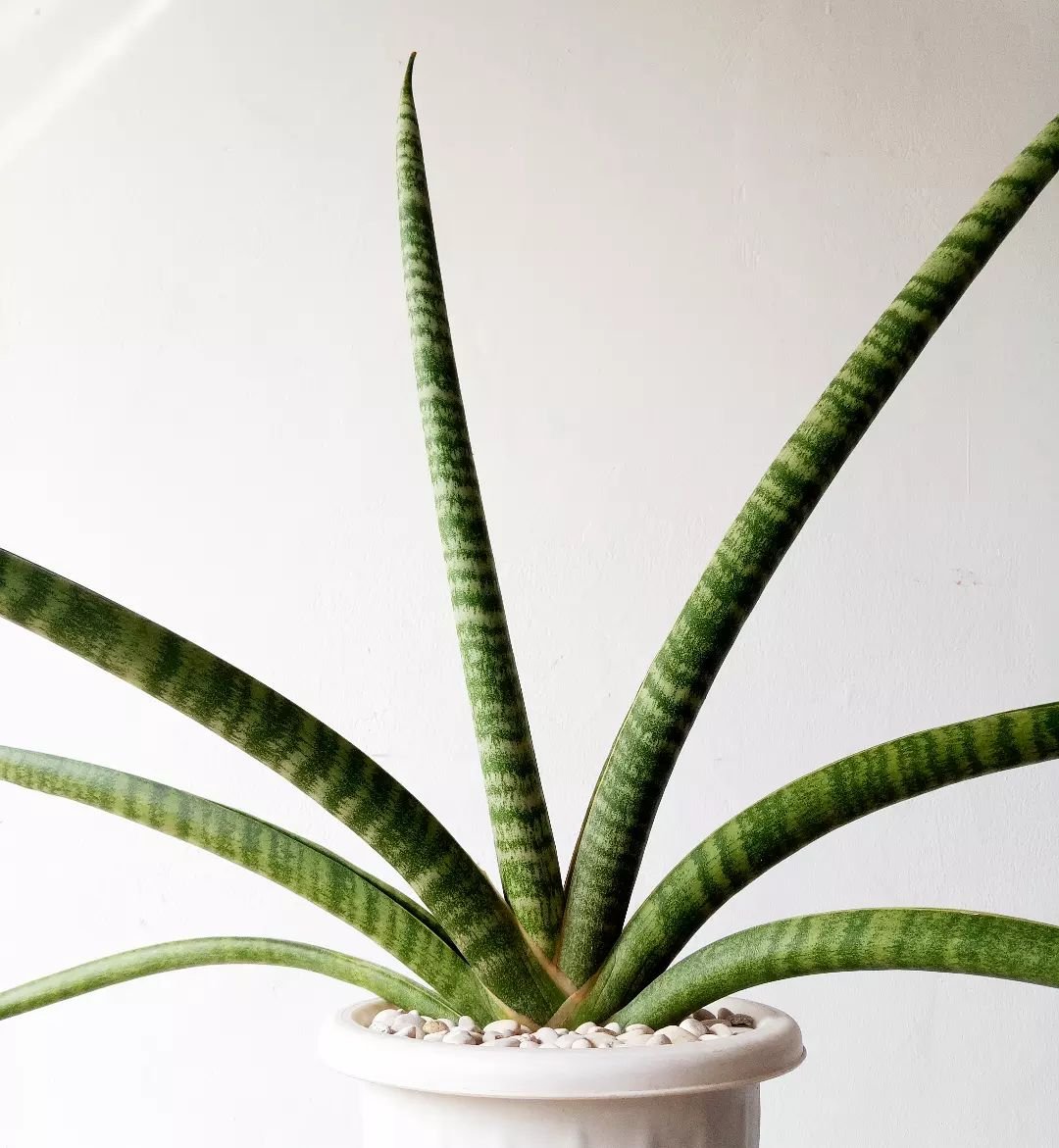
Here’s a completed chart with information about Snake Plant (Sansevieria):
| Category | Details |
|---|---|
| Botanical Name | Sansevieria trifasciata (now also classified as Dracaena trifasciata) |
| Common Name | Snake Plant, Mother-in-Law’s Tongue |
| Plant Zone | 9-11 (can be grown indoors in any zone) |
| Sun Exposure | Low Light to Bright Indirect Light |
| Soil Type | Well-drained, sandy or cactus mix |
| Watering | Low, allow soil to dry out between waterings |
| Growth Habit | Upright, stiff leaves |
| Height/Spread | 1-4 feet tall / 6-24 inches wide |
| Special Features | Low maintenance, air-purifying, drought-tolerant, architectural foliage |
Snake plants are perfect for beginners. They:
- Tolerate low light
- Need little water
- Remove toxins from the air
How to care: Water every 2-3 weeks and place in indirect light. The University of Vermont Extension provides excellent tips on general houseplant care, including watering techniques.
2. Monstera Deliciosa
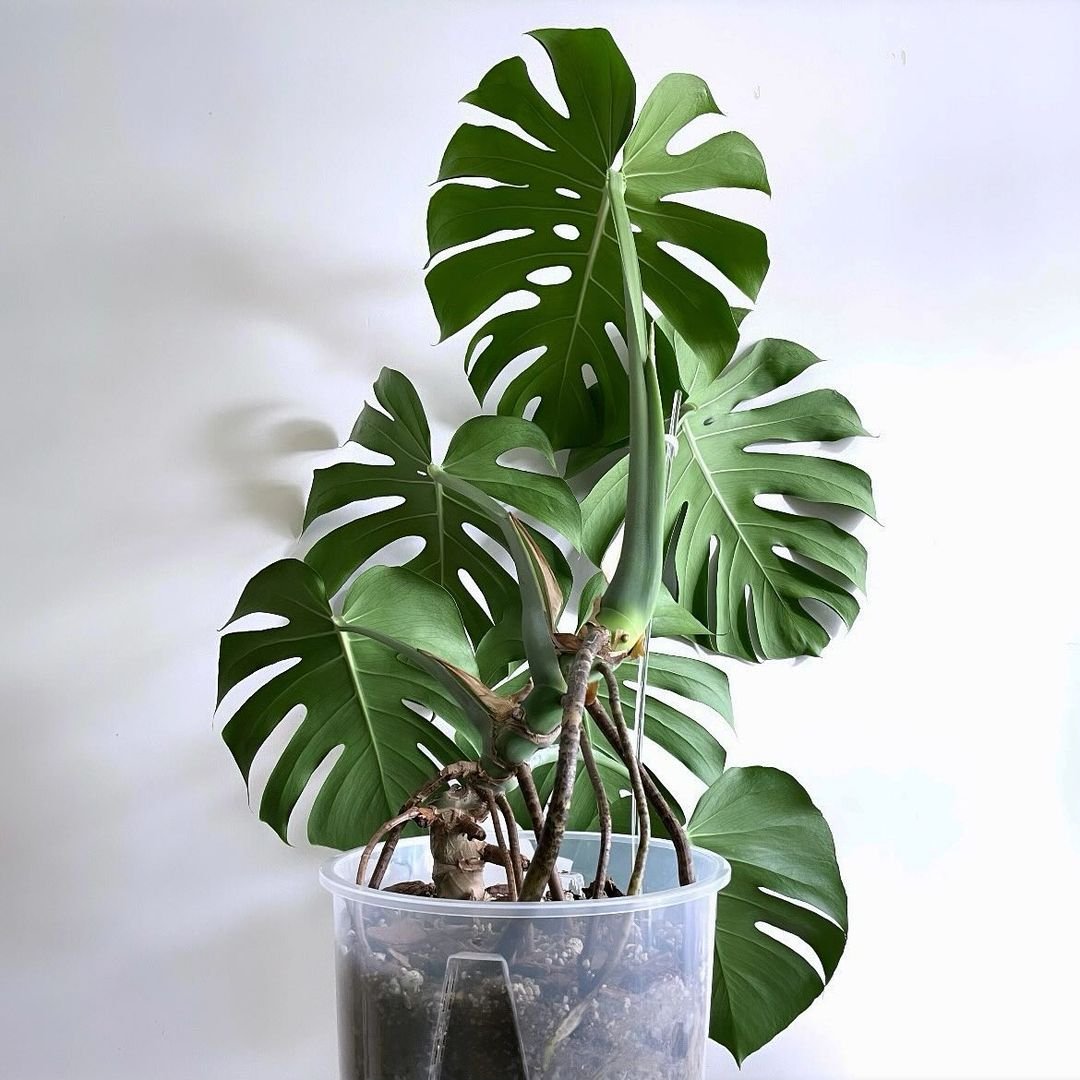
Here’s a completed chart with information about Monstera Deliciosa:
| Category | Details |
|---|---|
| Botanical Name | Monstera deliciosa |
| Common Name | Swiss Cheese Plant, Monstera |
| Plant Zone | 10-12 (grown as a houseplant in cooler zones) |
| Sun Exposure | Bright Indirect Light |
| Soil Type | Well-drained, peat-based potting mix |
| Watering | Moderate, water when the top inch of soil is dry |
| Growth Habit | Climbing or trailing, can be trained on supports |
| Height/Spread | 6-10 feet tall indoors (up to 30 feet in its natural habitat) / 3-6 feet wide |
| Special Features | Large, glossy, fenestrated leaves, air-purifying, fast-growing, tropical appearance |
Also known as the Swiss Cheese Plant, Monstera is famous for its unique leaf shape. It:
- Grows quickly
- Adds a tropical feel
- Is easy to propagate
Care tip: Provide bright, indirect light and water when the top inch of soil is dry. Learn more about tropical plant care from the United States Botanic Garden.
3. Pothos

Here’s a completed chart with information about Pothos (Epipremnum aureum):
| Category | Details |
|---|---|
| Botanical Name | Epipremnum aureum |
| Common Name | Pothos, Devil’s Ivy |
| Plant Zone | 10-12 (grown as a houseplant in cooler zones) |
| Sun Exposure | Low Light to Bright Indirect Light |
| Soil Type | Well-drained, all-purpose potting mix |
| Watering | Moderate, water when the top inch of soil is dry |
| Growth Habit | Trailing or climbing, can be trained on supports |
| Height/Spread | 6-10 feet long as a trailing plant / can climb up to 30 feet with support |
| Special Features | Low maintenance, air-purifying, tolerates low light, variegated foliage |
Pothos is a versatile trailing plant that:
- Thrives in various light conditions
- Removes indoor air pollutants
- Is easy to grow and propagate
Maintenance: Water when the soil is dry and trim as needed to control growth. The University of Illinois Extension offers comprehensive guides on houseplant care, including tips for Pothos.
4. Rubber Plant
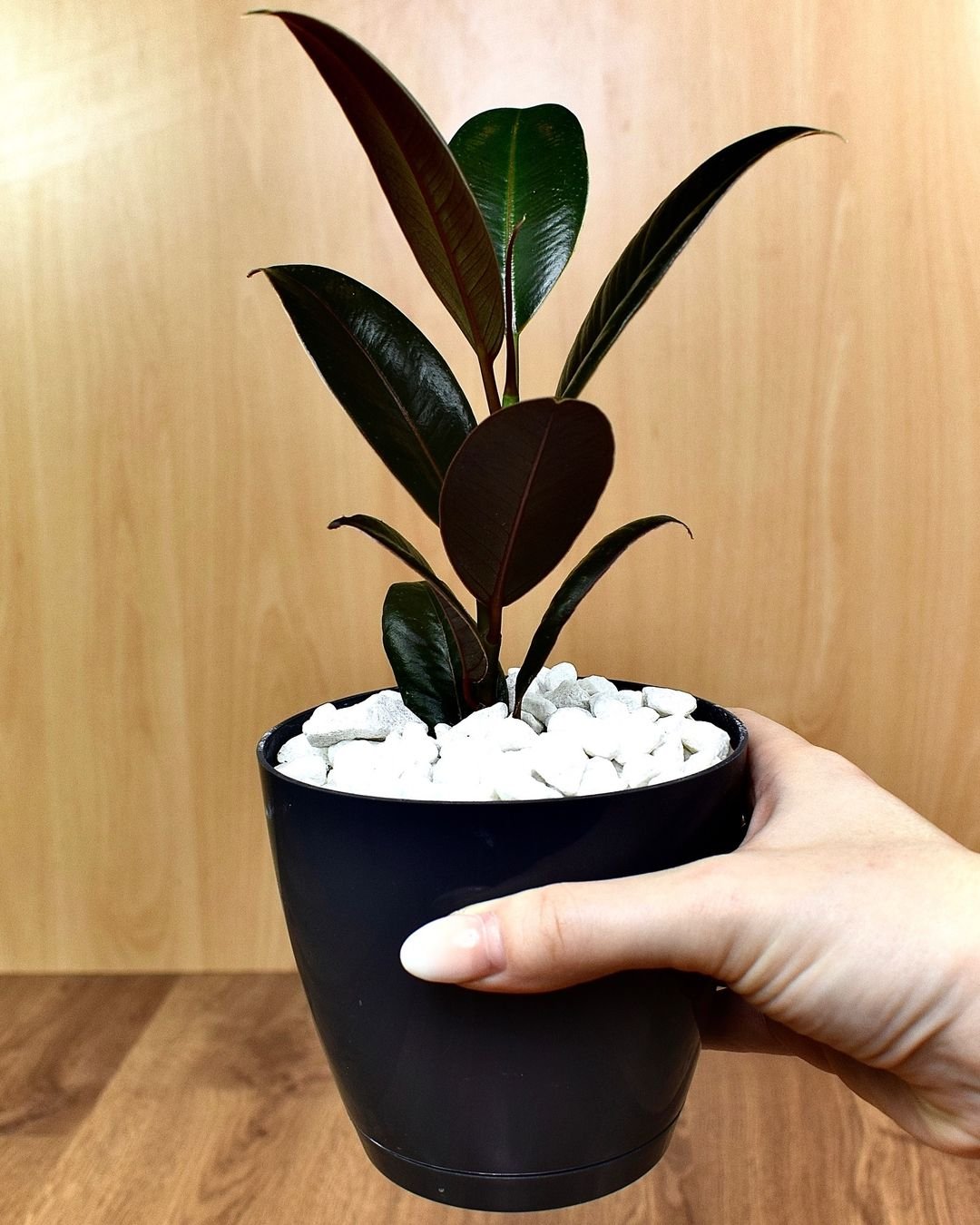
Here’s a completed chart with information about the Rubber Plant (Ficus elastica):
| Category | Details |
|---|---|
| Botanical Name | Ficus elastica |
| Common Name | Rubber Plant, Rubber Tree |
| Plant Zone | 10-12 (grown as a houseplant in cooler zones) |
| Sun Exposure | Bright Indirect Light to Partial Sun |
| Soil Type | Well-drained, all-purpose potting mix |
| Watering | Moderate, water when the top inch of soil is dry |
| Growth Habit | Upright, can be pruned to maintain desired size |
| Height/Spread | 6-10 feet tall indoors (can grow up to 100 feet in its natural habitat) / 2-3 feet wide |
| Special Features | Large, glossy leaves, air-purifying, easy to care for, can tolerate some neglect |
Rubber plants have glossy, dark green leaves that make a statement. They:
- Grow well indoors
- Can reach impressive heights
- Are relatively low-maintenance
Care instructions: Provide bright, indirect light and water when the top inch of soil is dry. The Clemson Cooperative Extension offers detailed care instructions for rubber plants.
5. Chinese Money Plant

Here’s a completed chart with information about the Chinese Money Plant (Pilea peperomioides):
| Category | Details |
|---|---|
| Botanical Name | Pilea peperomioides |
| Common Name | Chinese Money Plant, UFO Plant, Pancake Plant |
| Plant Zone | 10-12 (grown as a houseplant in cooler zones) |
| Sun Exposure | Bright Indirect Light |
| Soil Type | Well-drained, peat-based potting mix |
| Watering | Moderate, water when the top inch of soil is dry |
| Growth Habit | Upright, compact |
| Height/Spread | 12-15 inches tall / 12-15 inches wide |
| Special Features | Easy to propagate, attractive round leaves, low maintenance, air-purifying |
This trendy plant features round leaves on thin stems. It:
- Is compact and perfect for small spaces
- Produces “pups” you can share with friends
- Adds a modern touch to any room
How to grow: Place in bright, indirect light and water when the soil is almost dry. Learn more about propagating houseplants from the University of Minnesota Extension.
6. Fiddle Leaf Fig
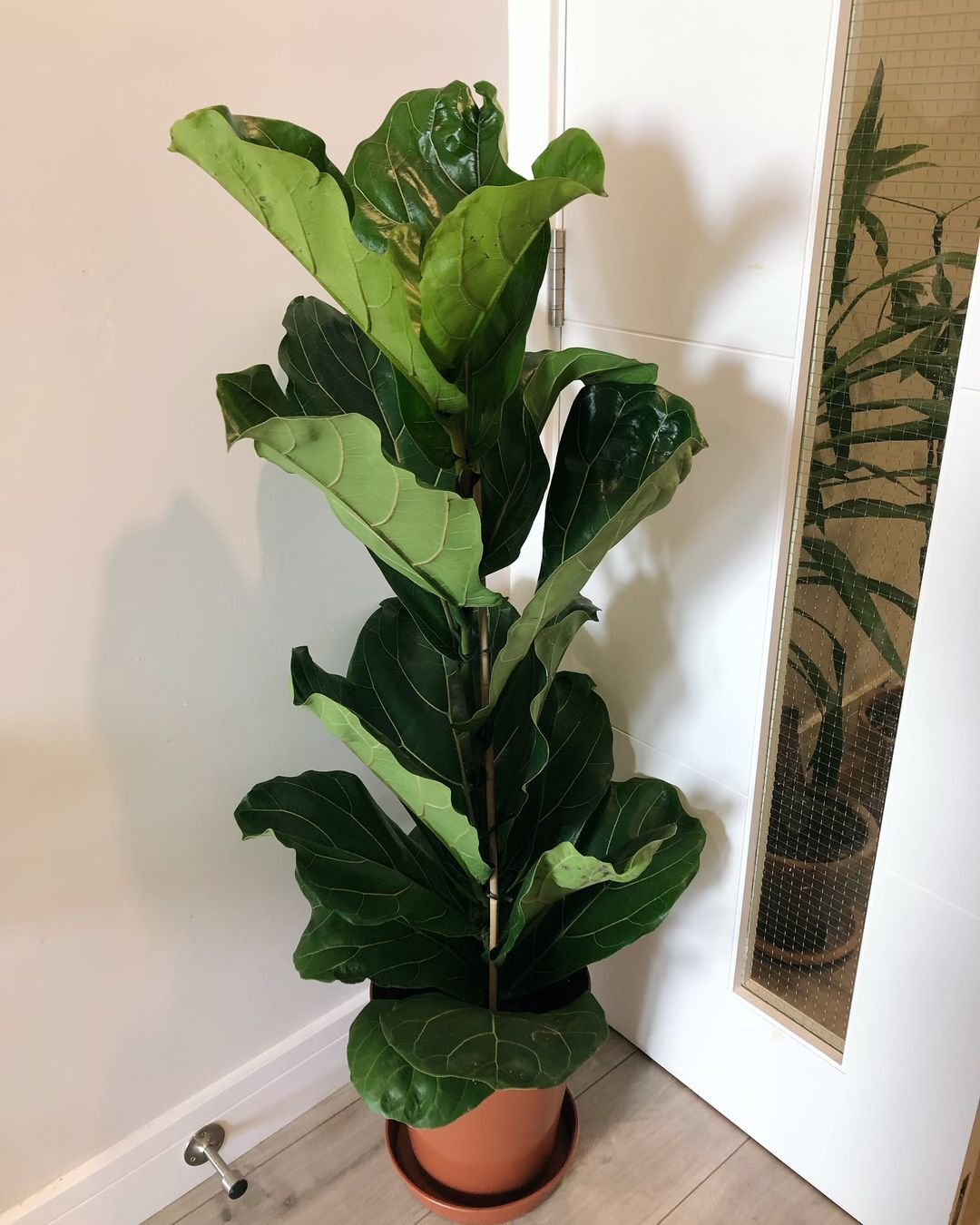
Here’s a completed chart with information about the Fiddle Leaf Fig (Ficus lyrata):
| Category | Details |
|---|---|
| Botanical Name | Ficus lyrata |
| Common Name | Fiddle Leaf Fig |
| Plant Zone | 10-12 (grown as a houseplant in cooler zones) |
| Sun Exposure | Bright Indirect Light |
| Soil Type | Well-drained, loamy soil |
| Watering | Moderate, water when the top inch of soil is dry |
| Growth Habit | Upright, can be pruned to maintain desired size |
| Height/Spread | 6-10 feet tall indoors (can grow up to 50 feet in its natural habitat) / 2-3 feet wide |
| Special Features | Large, violin-shaped leaves, air-purifying, architectural foliage, popular houseplant |
The fiddle leaf fig is known for its large, violin-shaped leaves. It:
- Makes a striking focal point
- Can grow quite tall
- Adds a touch of drama to any space
Care tip: Provide bright, indirect light and consistent watering. For tips on caring for larger houseplants, visit the United States Botanic Garden’s plant care basics page.
7. ZZ Plant
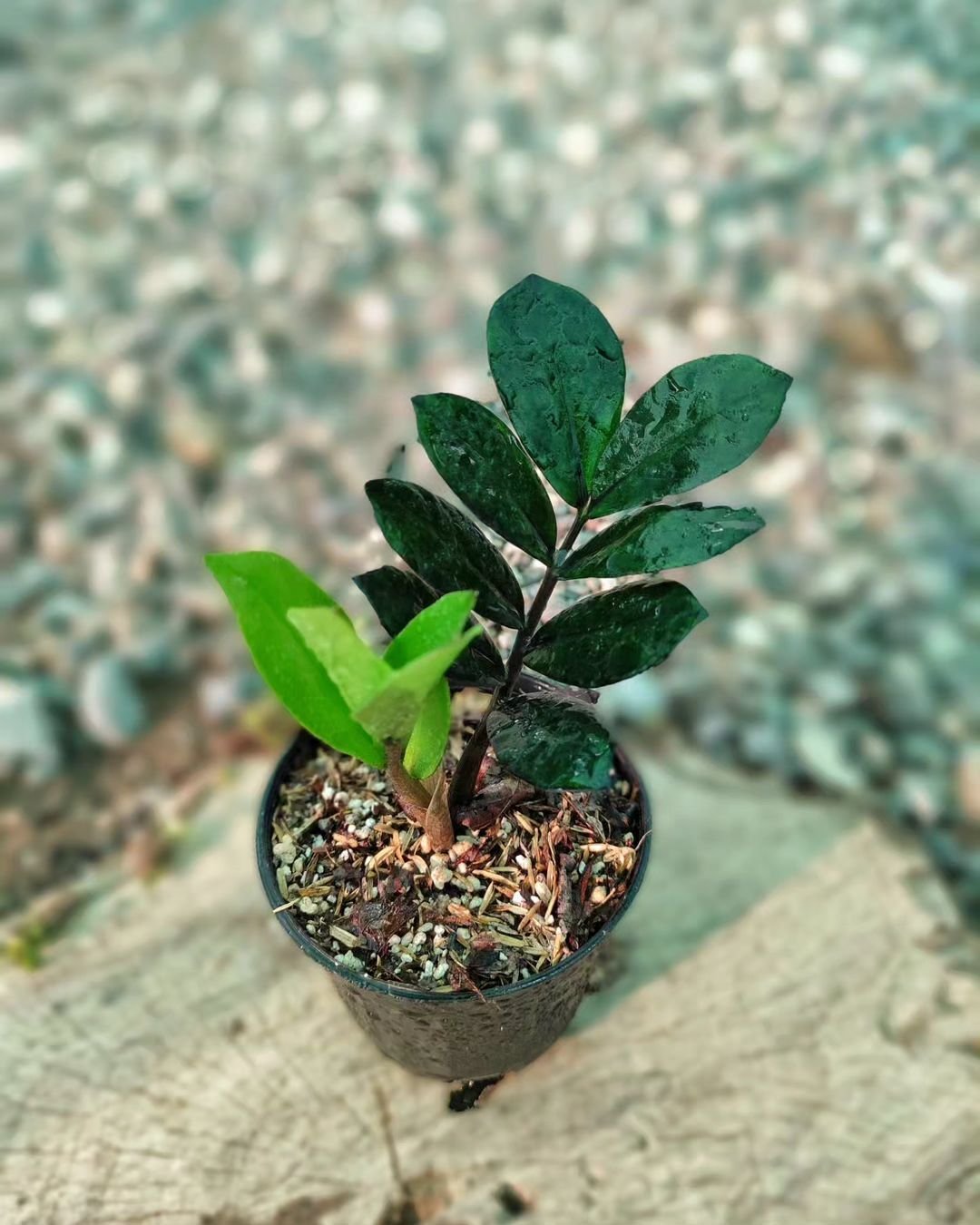
Here’s a completed chart with information about the ZZ Plant:
| Category | Details |
|---|---|
| Botanical Name | Zamioculcas zamiifolia |
| Common Name | ZZ Plant, Zanzibar Gem |
| Plant Zone | 9-11 (grown as a houseplant in cooler zones) |
| Sun Exposure | Low Light to Bright Indirect Light |
| Soil Type | Well-drained, all-purpose potting mix |
| Watering | Low, allow soil to dry out between waterings |
| Growth Habit | Upright, clumping |
| Height/Spread | 2-3 feet tall / 2-3 feet wide |
| Special Features | Extremely low maintenance, drought-tolerant, glossy leaves, air-purifying |
The ZZ plant is nearly indestructible, making it perfect for forgetful plant parents. It:
- Tolerates low light and drought
- Has glossy, dark green leaves
- Grows slowly but steadily
Maintenance: Water sparingly and provide low to moderate light. The University of Florida IFAS Extension provides excellent care tips for ZZ plants.
8. String of Pearls

Here’s a completed chart with information about the String of Pearls (Senecio rowleyanus):
| Category | Details |
|---|---|
| Botanical Name | Senecio rowleyanus |
| Common Name | String of Pearls |
| Plant Zone | 9-12 (grown as a houseplant in cooler zones) |
| Sun Exposure | Bright Indirect Light to Partial Sun |
| Soil Type | Well-drained, succulent or cactus mix |
| Watering | Low, allow soil to dry out between waterings |
| Growth Habit | Trailing |
| Height/Spread | Trails up to 2-3 feet long |
| Special Features | Unique, bead-like foliage, drought-tolerant, excellent for hanging baskets |
This unique succulent features small, bead-like leaves. It:
- Creates a cascading effect
- Works well in hanging baskets
- Adds texture to any space
How to care: Provide bright light and allow the soil to dry between waterings. For more information on succulent care, check out the University of California Agriculture and Natural Resources guide.
9. Bird of Paradise
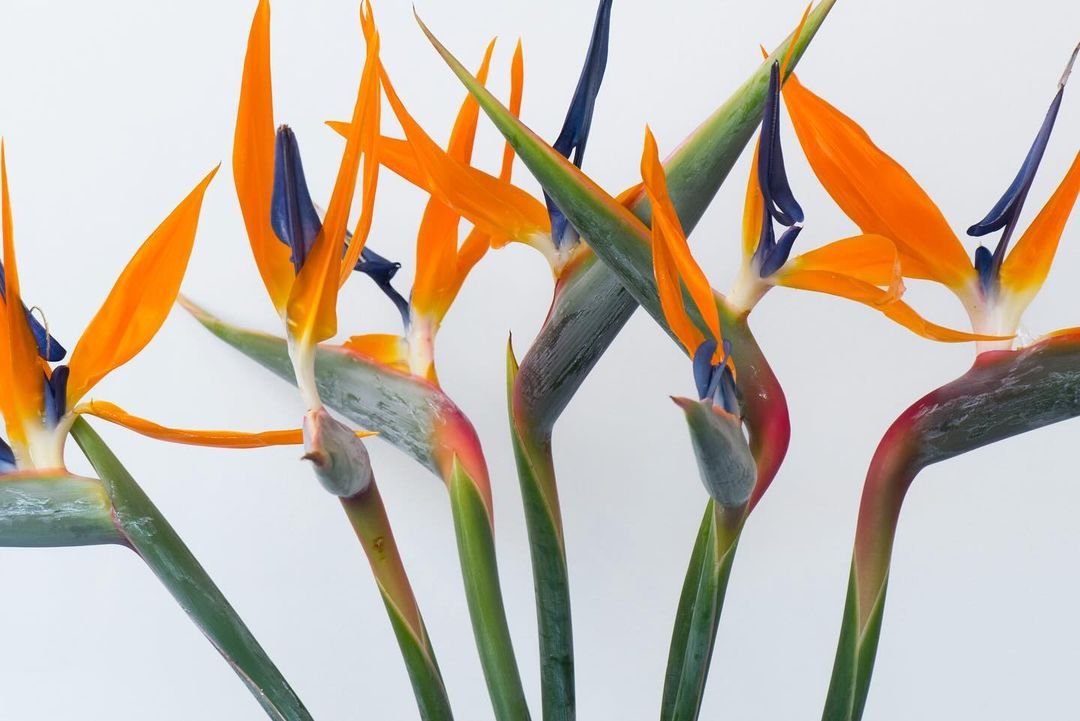
Here’s a completed chart with information about the Bird of Paradise (Strelitzia nicolai):
| Category | Details |
|---|---|
| Botanical Name | Strelitzia nicolai |
| Common Name | Bird of Paradise, Giant Bird of Paradise |
| Plant Zone | 9-12 (can be grown indoors in cooler zones) |
| Sun Exposure | Full Sun to Partial Shade |
| Soil Type | Well-drained, rich soil |
| Watering | Moderate, keep soil consistently moist but not soggy |
| Growth Habit | Upright, clumping |
| Height/Spread | 20-30 feet tall / 6-10 feet wide outdoors (6-8 feet tall indoors) |
| Special Features | Large, banana-like leaves, striking white and blue flowers resembling a bird, tropical appearance |
For a tropical touch, consider the bird of paradise. It:
- Has large, banana-like leaves
- Can produce striking flowers
- Makes a dramatic statement
Care instructions: Place in bright light and keep soil consistently moist. Learn about tropical plant care from the Smithsonian Gardens tropical plant fact sheet.
10. Air Plants

Here’s a completed chart with information about Air Plants:
| Category | Details |
|---|---|
| Botanical Name | Tillandsia spp. |
| Common Name | Air Plants |
| Plant Zone | 9-11 (grown as houseplants in any zone) |
| Sun Exposure | Bright Indirect Light |
| Soil Type | No soil needed, can be mounted on various surfaces |
| Watering | Mist 2-3 times a week or soak in water for 20-30 minutes weekly |
| Growth Habit | Varies, typically small and clumping |
| Height/Spread | Varies, typically 2-12 inches tall and wide |
| Special Features | Unique, soil-less growth, low maintenance, can be displayed in creative ways, air-purifying |
Air plants are unique because they don’t need soil. They:
- Come in various shapes and sizes
- Can be displayed creatively
- Are very low-maintenance
How to grow: Soak in water weekly and provide bright, indirect light. The United States Department of Agriculture’s Plant Database offers information on various Tillandsia species.
11. Calathea
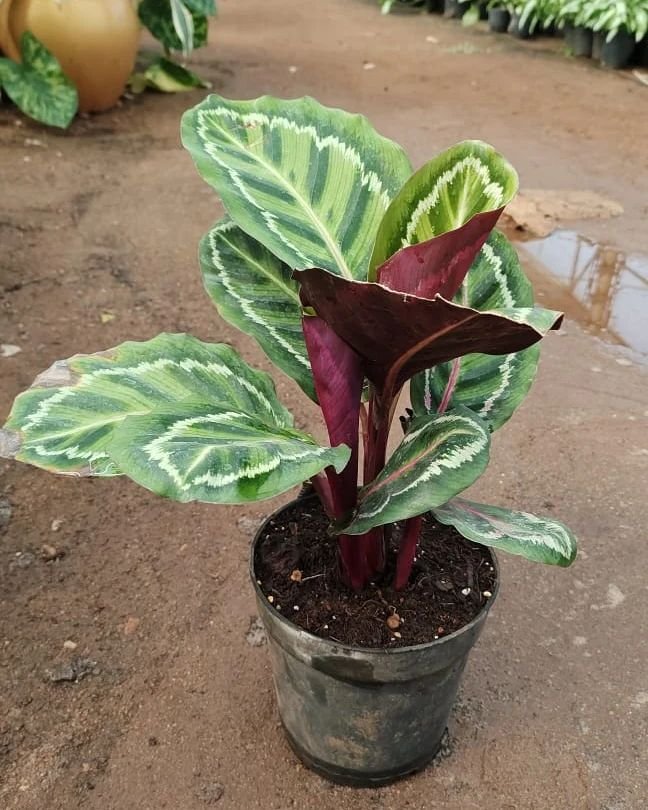
Here’s a completed chart with information about Calathea:
| Category | Details |
|---|---|
| Botanical Name | Calathea spp. |
| Common Name | Calathea, Prayer Plant |
| Plant Zone | 10-12 (grown as a houseplant in cooler zones) |
| Sun Exposure | Bright Indirect Light to Low Light |
| Soil Type | Well-drained, peat-based potting mix |
| Watering | Regular, keep soil consistently moist but not soggy |
| Growth Habit | Upright, clumping |
| Height/Spread | 1-3 feet tall / 1-2 feet wide |
| Special Features | Striking foliage patterns and colors, leaves fold up at night, air-purifying |
Calathea plants are known for their striking leaf patterns. They:
- Come in many varieties
- Have leaves that move throughout the day
- Add visual interest to any space
Care tip: Provide humidity, indirect light, and keep soil lightly moist. For more information on tropical houseplants, visit the University of Connecticut Home & Garden Education Center.
12. English Ivy
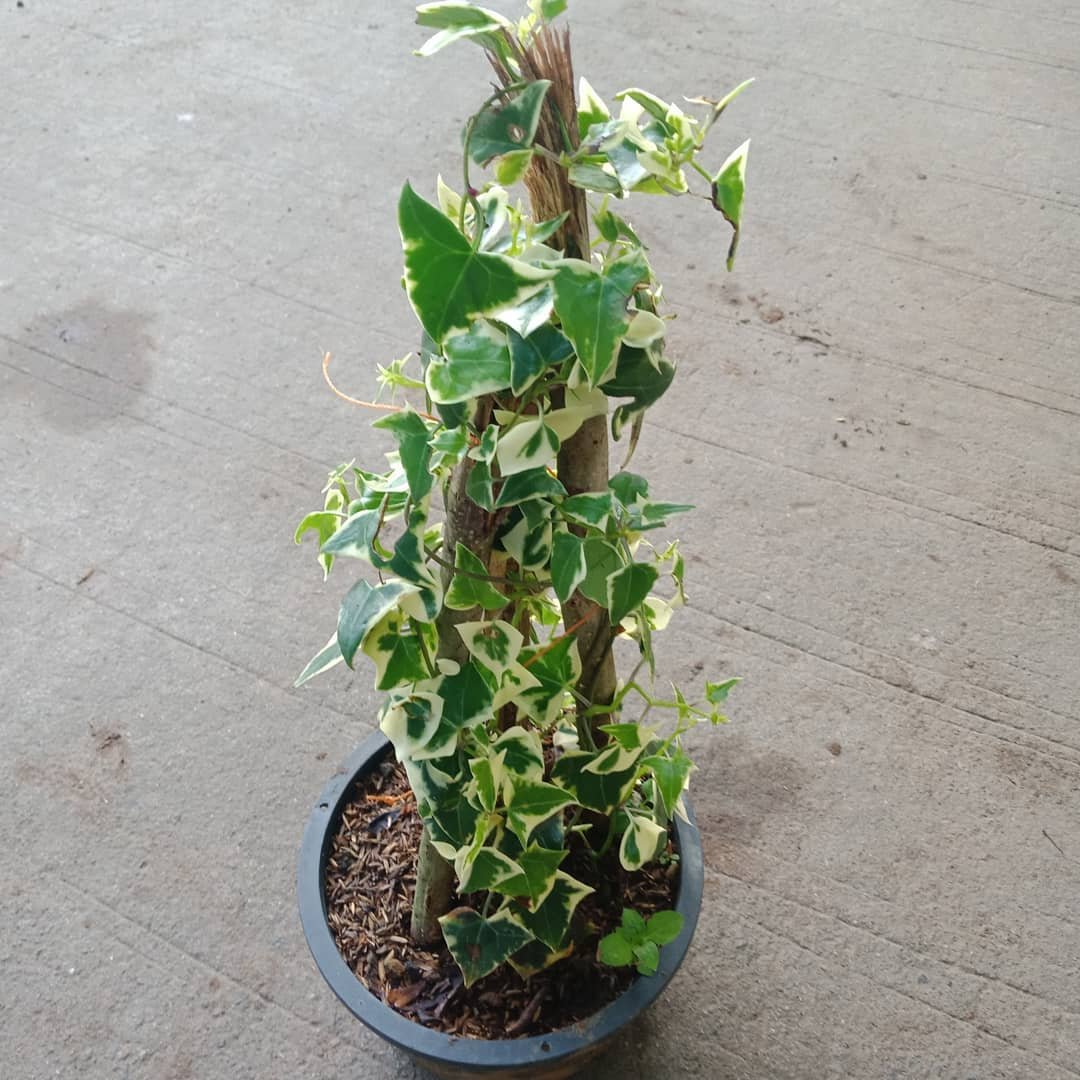
Here’s a completed chart with information about English Ivy (Hedera helix):
| Category | Details |
|---|---|
| Botanical Name | Hedera helix |
| Common Name | English Ivy, Common Ivy |
| Plant Zone | 4-11 (can be grown indoors in any zone) |
| Sun Exposure | Partial Shade to Full Sun |
| Soil Type | Well-drained, rich soil |
| Watering | Moderate, keep soil evenly moist but not soggy |
| Growth Habit | Climbing or trailing |
| Height/Spread | Varies, can grow up to 50 feet or more with support / 1-2 feet wide |
| Special Features | Versatile, can be used as ground cover or climbing plant, air-purifying, adaptable to various conditions |
English ivy is a classic trailing plant that:
- Can be grown indoors or outdoors
- Removes air pollutants
- Creates a lush, green cascade
Maintenance: Provide moderate light and keep soil slightly moist. The United States National Park Service offers information on English Ivy, including its potential invasive nature in some regions.
13. Peace Lily
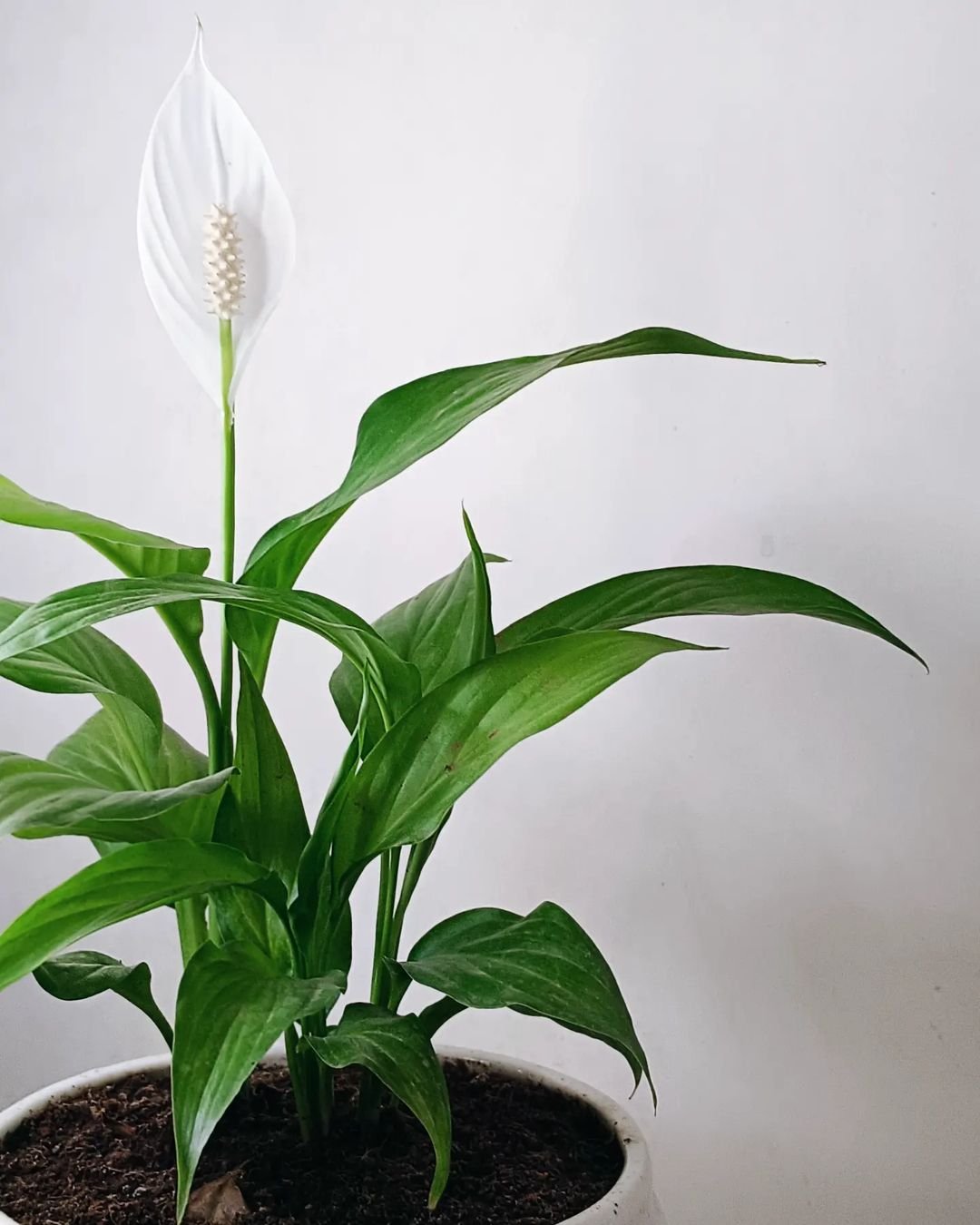
Here’s a completed chart with information about Peace Lily (Spathiphyllum):
| Category | Details |
|---|---|
| Botanical Name | Spathiphyllum spp. |
| Common Name | Peace Lily, Spathe Flower |
| Plant Zone | 10-12 (grown as a houseplant in cooler zones) |
| Sun Exposure | Low Light to Bright Indirect Light |
| Soil Type | Well-drained, peat-based potting mix |
| Watering | Regular, keep soil consistently moist but not soggy |
| Growth Habit | Upright, clumping |
| Height/Spread | 1-4 feet tall / 1-3 feet wide |
| Special Features | Elegant white flowers, glossy green leaves, air-purifying, low maintenance |
Peace lilies are elegant plants that:
- Produce white flowers
- Thrive in low light conditions
- Help purify the air
How to care: Water when the soil is dry and provide low to moderate light. For more information on indoor air quality and plants, visit the Environmental Protection Agency’s Indoor Air Quality page.
14. Aloe Vera

Here’s a completed chart with information about Aloe Vera plants:
| Category | Details |
|---|---|
| Botanical Name | Aloe vera |
| Common Name | Aloe Vera |
| Plant Zone | 9-11 (can be grown indoors in any zone) |
| Sun Exposure | Bright Indirect Light to Full Sun |
| Soil Type | Well-drained, cactus or succulent mix |
| Watering | Low, allow soil to dry out completely between waterings |
| Growth Habit | Rosette, succulent leaves |
| Height/Spread | 12-18 inches tall / 12-18 inches wide |
| Special Features | Gel-filled leaves with soothing properties, drought-tolerant, low maintenance, air-purifying |
Aloe vera is both attractive and useful. It:
- Has healing properties
- Is easy to care for
- Adds a touch of desert charm
Care instructions: Provide bright light and allow soil to dry between waterings. Learn more about the medicinal properties of aloe vera from the National Center for Complementary and Integrative Health.
15. Spider Plant
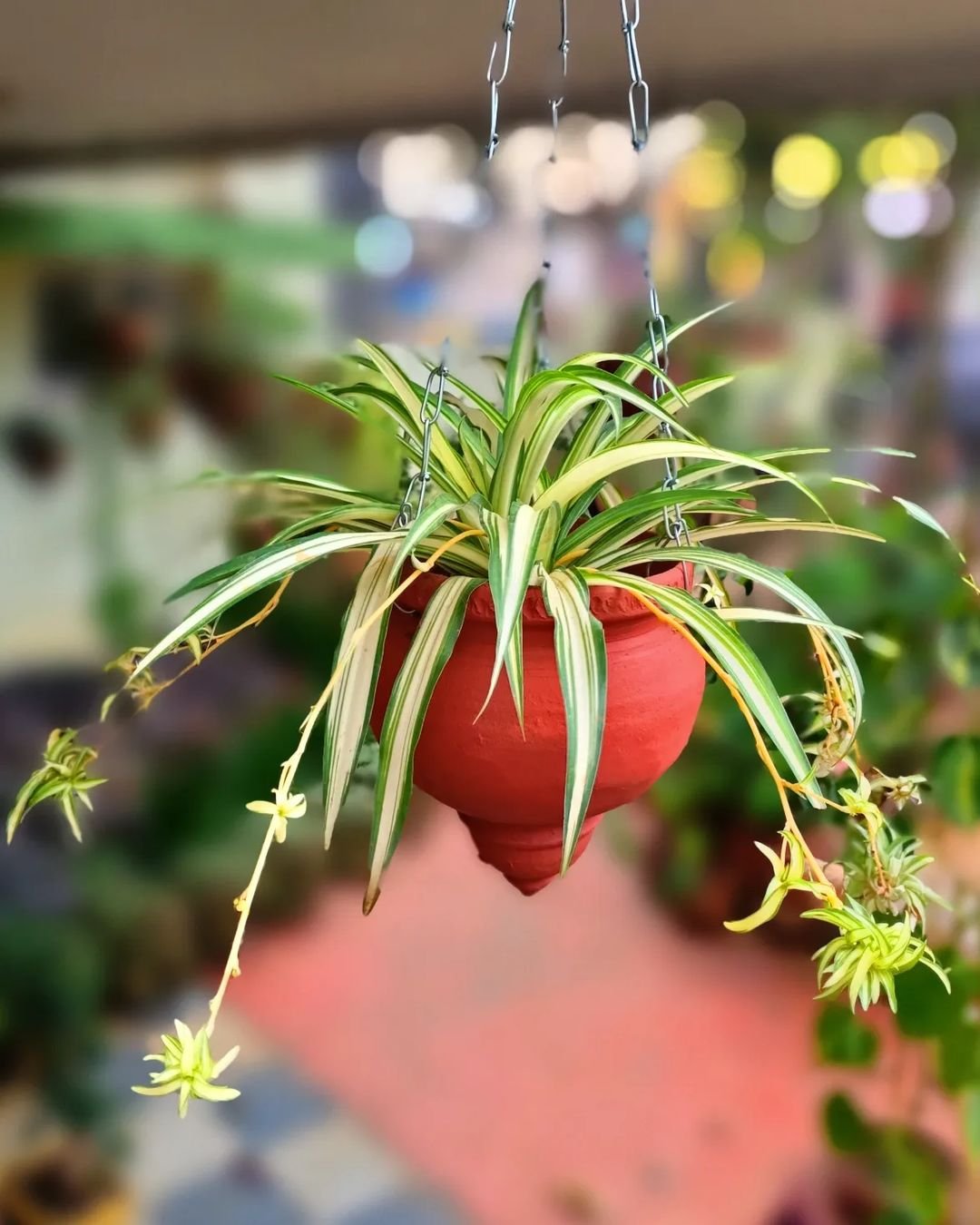
Here’s a completed chart with information about Spider Plant (Chlorophytum comosum):
| Category | Details |
|---|---|
| Botanical Name | Chlorophytum comosum |
| Common Name | Spider Plant |
| Plant Zone | 9-11 (can be grown indoors in any zone) |
| Sun Exposure | Bright Indirect Light |
| Soil Type | Well-drained, all-purpose potting mix |
| Watering | Moderate, allow soil to dry out between waterings |
| Growth Habit | Clumping, produces offsets (babies) |
| Height/Spread | 12-18 inches tall / 12-24 inches wide |
| Special Features | Air-purifying, easy to propagate, arching leaves, low maintenance |
Spider plants are classic, easy-care options that:
- Produce “babies” you can propagate
- Remove indoor air pollutants
- Look great in hanging baskets
How to grow: Provide moderate light and water when the top inch of soil is dry. The United States Department of Agriculture offers a wealth of information on houseplant care, including tips for spider plants.
Adding aesthetic plants to your home or garden can greatly improve your living space. Whether you’re a beginner or an experienced plant parent, there’s an option on this list for everyone. Start with one or two plants and gradually expand your collection as you gain confidence in your plant care skills.
Remember, each plant has unique needs, so be sure to research specific care instructions for the best results. For more information on native plants and their benefits, check out the National Park Service’s guide to native plants. Happy planting!
Pingback: 15 Best Aesthetic Plants for Your Home and Gard...